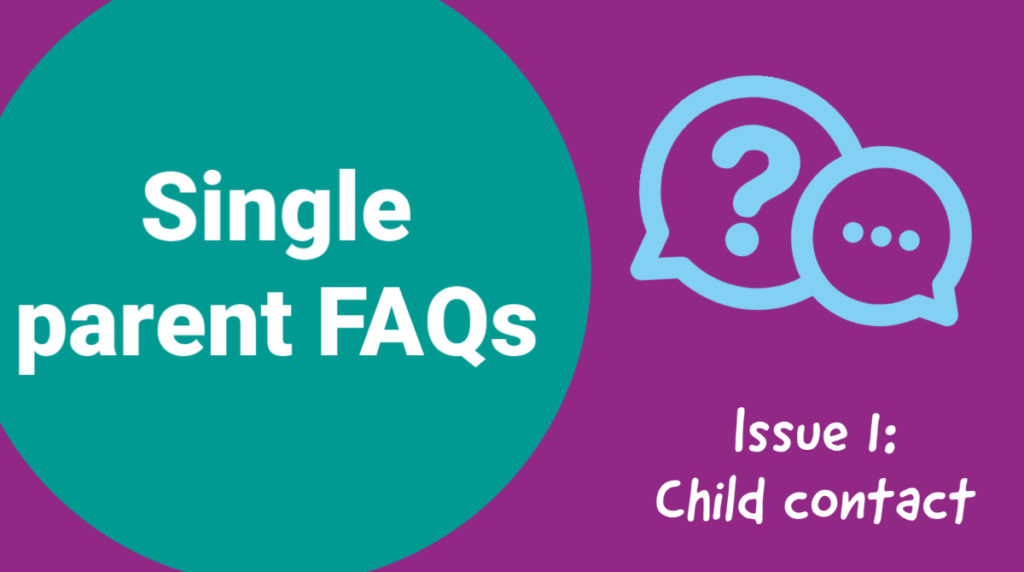Single parent FAQs: Child contact

13/01/2021
Our advice and information team, who work on our Lone Parent Helpline, webchat and Ask a Question feature, receive questions from single parents around Scotland every day. During the Covid-19 pandemic, we’ve seen a significant rise in requests for advice.
So, we’ve decided to launch a new feature through our newsletter and blog which spotlights Frequently Asked Questions (FAQs) on a different topic each month.
This month, we’re looking at child contact, which many single parents have asked us about recently.
Child contact FAQs
Q. How often should my child or children have contact with their other parent?
A. Arrangements and routine that you arrange can change over time and contact can look different for each family, depending on the age of your children and your family’s circumstances and children’s needs. Some children stay overnight with their other parent on a regular basis, other children see their parent for a couple of hours at a time, and some have shared care.
Q. How can I arrange contact for my children to see their other parent?
A. Contact can be arranged between both parents by discussing what will work well for them and their children. Some families may find that using a parenting plan works well for them. A parenting plan is a useful tool and can include contact arrangements, where the child/children will live, and so on. More information on the parenting plan can be found at the Scottish Government website.
Q. What can I do if we can’t agree on contact arrangements?
A. If you can’t decide on contact, you could try mediation which can help resolve disagreements about contact with the guidance of a trained professional. It is not legal advice, and it is not counselling. You will discuss the issues, and the mediator will make sure you both have your say. Mediation can work if you both want to reach an agreement, even if you hold different views at the start.
If a mediation service will not work for you then you may need to get legal advice. The Scottish Child Law Center provides advice about legal issues affecting children. They do not take on individual cases, but the advice is free. Contacting a solicitor and trying to come to an agreement may help.
If mediation and solicitors still haven’t helped you come to an agreement, as a last resort you could ask the court to decide. More information on help with contact can be found here on our website.
Learn more
All our information on child contact can be found on our advice pages.
Contact our advisers via the helpline, webchat, email or submit a question at our ‘talk to us’ section.
Q. My children don’t want to visit their other parent, what can I do?
A. It would be good depending on your child’s age to ask them why they don’t want to go and then you can work out a solution together. As children become older they might want to attend parties or after school clubs, so arrangements can be changed to ensure children can participate.
Q. My child’s other parent is always late or doesn’t turn up for contact. What can I do?
A. A parent not showing up will be upsetting for your children. Try and stay calm and not criticise the other parent. Try contacting your ex-partner and explaining how upsetting this is for the children. Ask if a different time would suit or, if they can’t make the contact, to let the children know as soon as possible to cause less disruption. More information on this can be found here.